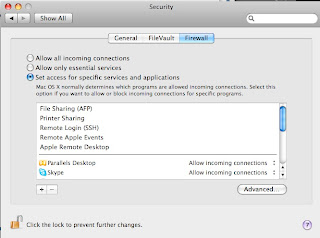The Six P's of Online Branding By Kirsten Dixson and William ArrudaWe’ve written many articles about how you will be Googled in your job search and how having your own blog or website gives you a great deal of control over your personal brand online.
But what if you’re not ready to have your own site and just want to build an online profile quickly? Or, perhaps you came up as "Digitally Dabbling" in our Career Distinction Online ID Calculator, and you want to increase your volume of relevant online entries? All is not lost! Just use our Six P’s to build your online brand.
PublishingWrite articles or whitepapers, and get them published in online publications that your target audience reads. Your online profile will be even better if these publications are highly ranked in Google, Yahoo or MSN. You can also submit articles to article banks to have them syndicated.
PostingIf you’ve ever purchased a book from Amazon.com or BarnesandNoble.com, you can post a book review on these websites. It’s key to review books that are relevant to your area of expertise. Off-topic choices may confuse the perception of your online personal brand. Even if you love to cook, don’t review a cookbook if you don’t want to work in the food and beverage industry.
PontificatingPosting comments on others’ blogs is a powerful way to build your brand - yet it’s probably the most overlooked online branding tool. Dan Schawbel is a marketing executive who has creatively used this technique to increase his visibility. In fact, this tool even garnered him a mention in Fast Company.
You can find relevant blogs on which to comment at Technorati.com or through Google’s blog search. Read a blog for a while before you comment to get a feel for the author’s style and whether you want this particular blog associated with your own brand. Remember, you can’t take back the comment once it’s posted, so ensure that it’s professional, well thought out, and error free.
If you’re hesitant about posting, go with your gut and sleep on it. Be sure to link the comment back to your own blog or website if you have one. You could also link it to your LinkedIn or Ziggs profile if you don’t have your own site.
Participating in online discussion forums also helps you to connect with and become more visible to others who share the same interests, though it’s not necessarily a part of your public online identity that will show up in a search. You can find forums through Google Groups or Yahoo Groups, and some by-invitation forums may be available to you through professional associations. Bernadette Martin, founder of Visibility Branding, says online forums can be a valuable way to formulate ideas and strategies before presenting them to the public on the internet.
PublicizingWrite press releases about your endeavors (solo business project successes, what you learned from attending a professional conference, noteworthy volunteer work, information about an upcoming speaking gig or article, etc.), and post them to free press release distribution sites like www.prleap.com.
You can find more sites like this by Googling "free press release services". If you need the press release to rank highly (maybe you have digital dirt that you are trying to sweep under the virtual rug?), consider purchasing the search engine optimization services available from many of these content distribution sites.
PartneringOne of the most important elements of your brand environment is your professional network. Since your network can extend your brand for you by spreading the word about your unique value, it’s ideal to get others to write about you online. Cultivate relationships with journalists and bloggers. If you’re writing a blog that people read and enjoy, they’ll write about what you are saying and link back to you. It’s that simple!
Also, leverage social networking sites like LinkedIn, Ryze, ecademy and Facebook to connect with your network and keep them updated on your accomplishments. Aim for quality of contacts over quantity, and only add your real colleagues and clients to your online network.
ProfilingUse services like Ziggs, LinkedIn, Naymz, and ZoomInfo to create a basic online profile and increase the volume of Google results for your name. If your professional information already appears online, you are likely to have a profile in Zoominfo.
Since they automatically create your profile and twenty percent of the Fortune 500 use ZoomInfo for recruiting, you’ll want to claim your profile and update it regularly. To get the most out of these sites, post content that is consistent across all of your profiles and that matches your resume.
William Arruda and Kirsten Dixson are the authors of
Career Distinction: Stand Out by Building Your Brand and partners in
Reach , a global leader in personal branding for career-minded executives and professionals.














